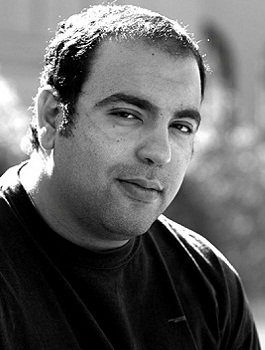By Sadegh Zibakalam
Even before the Americans accused Iran of a plot to assassinate a Saudi diplomat in the United States, relations between Tehran and Riyadh were at a low. Needless to say, the accusation only deepened the animosity between these two staunch Islamic states.
Iranian officials as well as the state-run media flatly denied the assassination story and dismissed it as a “third rate Hollywood motion picture scenario”. The Iranian foreign ministry spokesperson asked, “Why would Iran want to go to the trouble of arranging a clumsy plot to assassinate an unimportant Saudi diplomat?” A leading hard-line newspaper close to government circles wrote, “This world is full of countries in which we could have carried out such a plot if for any reason we had desired to do so. Why should we have chosen the US capital where we don’t enjoy any privileges and have no bases to operate?”
The Iranian speaker of parliament stated that by fabricating such a “foolish and amateurish” story, US leaders wanted to divert world public attention away from the “Wall Street movement crisis and rebellion”. Another Iranian leader commented that the US was trying to cover its disastrous departure from Iraq by fabricating this “bizarre story”.
Initially, Iranian leaders did not refer to the Saudis. However, as Riyadh became increasingly angry over Iran’s alleged involvement and pressed Tehran for “explanations”, the Iranian media also changed its tune. One after another, Iranian leaders reminded the Saudis of their involvement in brutally suppressing the innocent Bahraini Shiites.
To be sure, relations between the two states have not been cordial since the Iranian Islamic Revolution of 1979. The Iranian leadership regards the Saudis as cronies of the US in the region and has no respect for them. The Saudis in turn regard the Islamic regime as a troublemaker lurking behind every radical and anti-Saudi movement in the region.
During the past 32 years, there has been only one Iranian leader whom the Saudis trusted: Ayatollah Akbar Hashemi Rafsanjani. Relations between the two states improved remarkably during his presidency (1989-1997). Hashemi Rafsanjani managed even to influence relations between Tehran and Riyadh during President Mohammad Khatami’s term of office. But since Mahmoud Ahmadinejad came to power in 2005 and the hardliners pushed Hashemi Rafsanjani and the reformists aside, relations with Riyadh have reverted to the bad old days of the first decades of the Islamic Revolution.
Many observers regard religious differences between Iran and Saudi Arabia as the core cause of the deep tensions between them. They are wrong. Hamas and Palestinian Islamic Jihad are as Sunni as the Saudi leaders, yet both are strategic allies of Islamic Iran. The conflict between Iran and Saudi Arabia is in fact a proxy war between Iran and the US, whereby Iran and the US/Saudi Arabia are at odds with one another literally in every country and regarding every dispute in the region.
Tehran strongly supports the Iraqi government whereas Saudi relations with Baghdad are very cold. Iran supports Hamas and the other radical Palestinian groups whereas the Saudis support President Mahmoud Abbas and the moderates. Iran supports Hezbollah while the Saudis support its enemies. Iran strongly backs President Bashar Assad’s regime in Syria while Riyadh supports moves to overthrow him. Throughout the Arab world, Iran openly supports radical Islamists who tend to be anti-western, while the Saudis are more inclined towards the moderate currents.
Even in Afghanistan they have their differences. Once again, the Saudis tend to support moderate groups there while Tehran is inclined more towards the radicals. In the Persian Gulf region, Riyadh is looked upon as an ally by the Gulf states while Iran is regarded as a potential threat.
Ironically, even regarding the Hajj annual pilgrimage to Mecca, Iran and Saudi Arabia have sharp differences. The latter believes the Hajj is a purely spiritual and religious affair while the former regards the Hajj as both “religious and political”. During the Hajj ceremony, thousands of Iranian pilgrims take part in a huge rally that calls for “death to the US and death to Israel” as well as to the other “satans”. The Saudis oppose the rally as an un-Islamic act. In 1987, a struggle erupted when Saudi military police attacked Iranian pilgrims in order to break up their rally in the holy city of Mecca; more than 400 Iranian pilgrims were shot to death and more than 1,000, including many women, were injured by the Saudi National Guard. Nevertheless, Iranian pilgrims have continued to hold the so-called anti-US rally every year.
It is difficult if not impossible to envisage how relations between the two countries could ever improve. The alleged assassination plot emerged against more than three decades of political animosity between them. Without a fundamental transformation of relations between Iran and the US, any hope of changing the relationship between Iran and Saudi Arabia is unrealistic.
Sadegh Zibakalam is professor of political science at Tehran University. This commentary is published by DAILY NEWS EGYPT in collaboration with bitterlemons-international.org.



